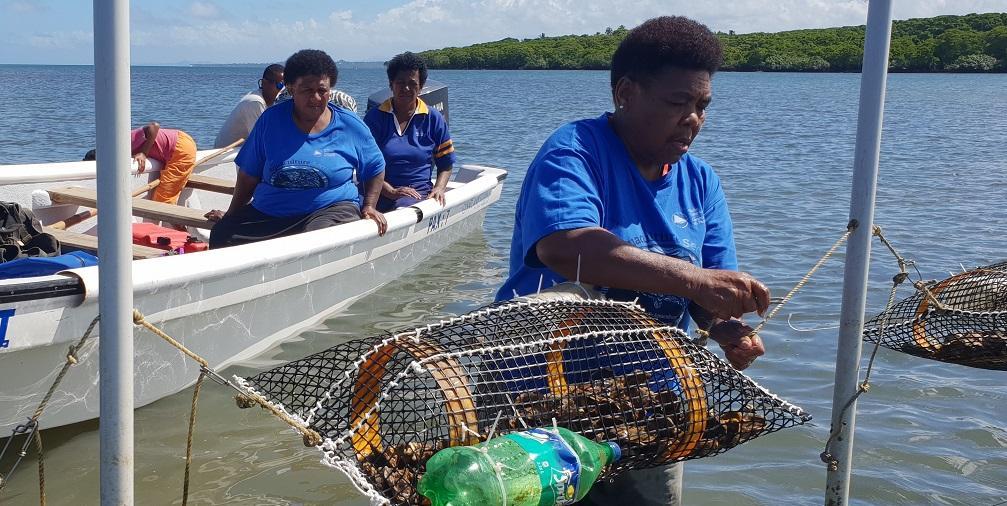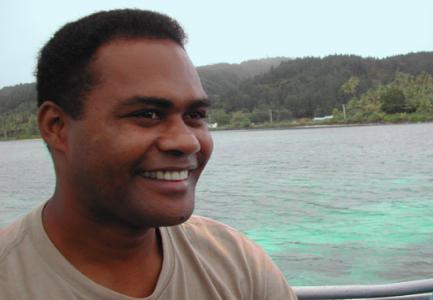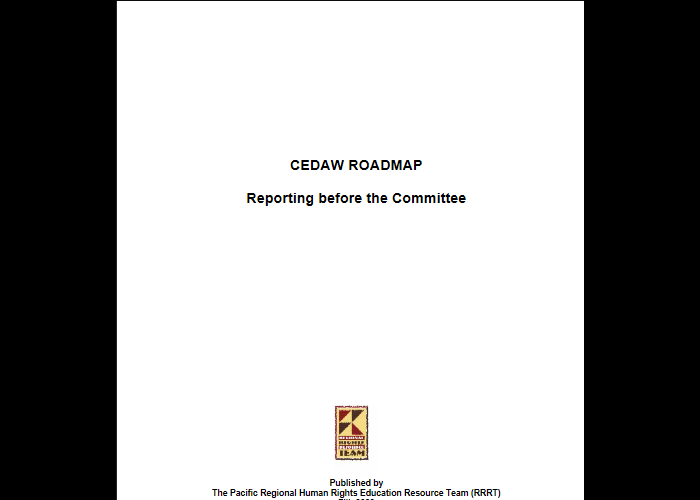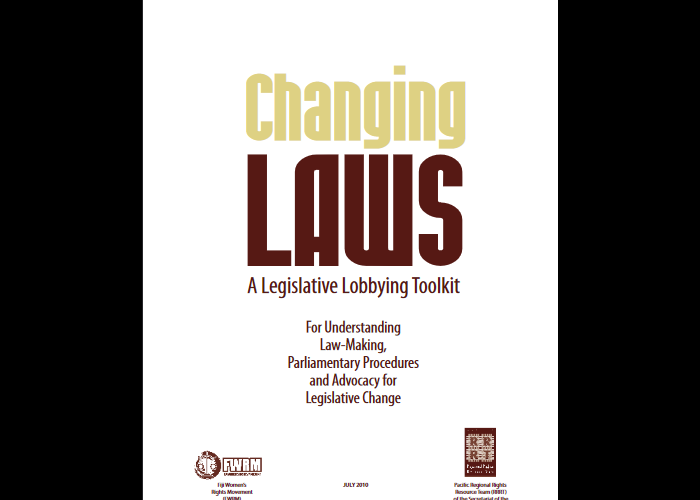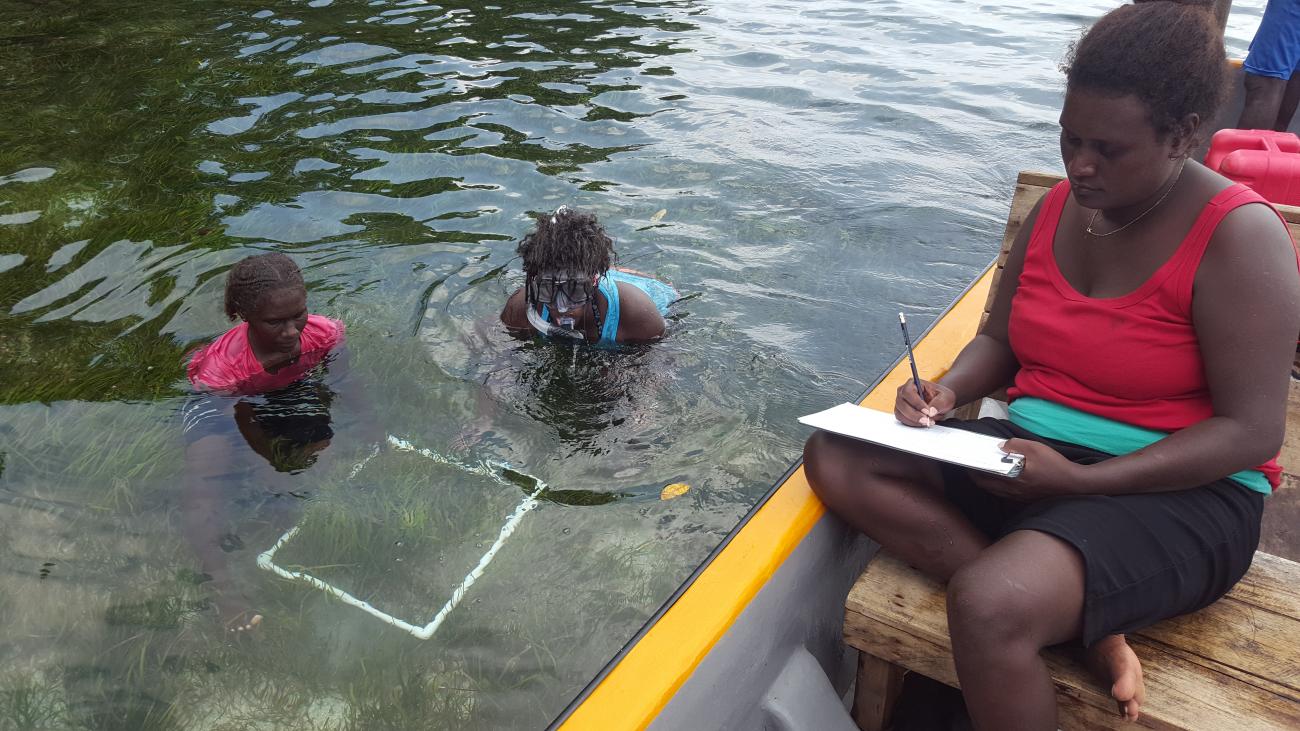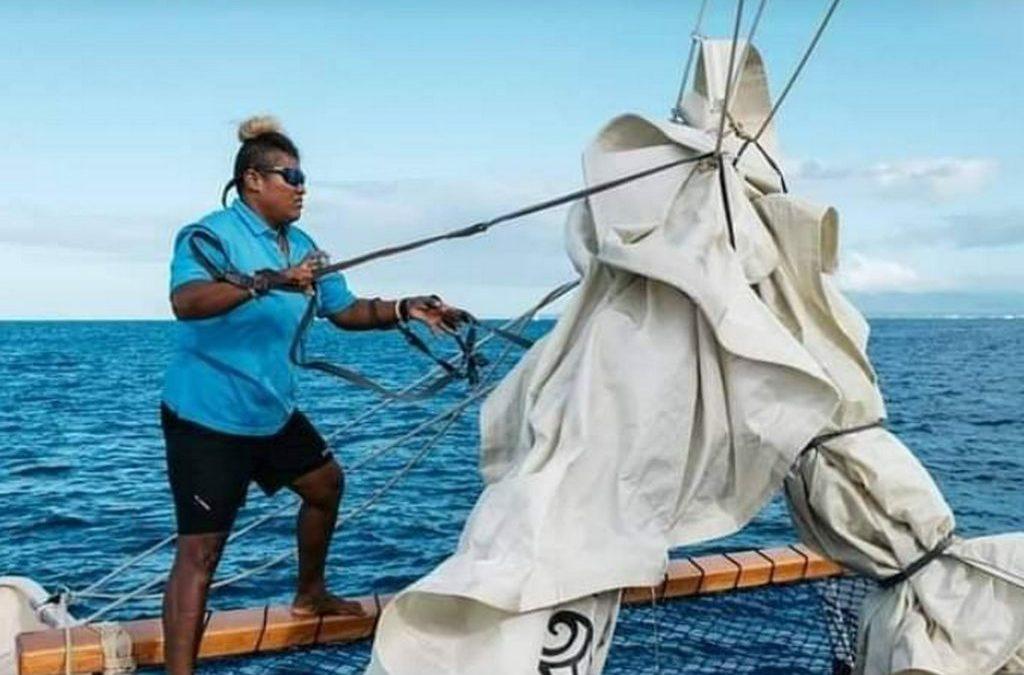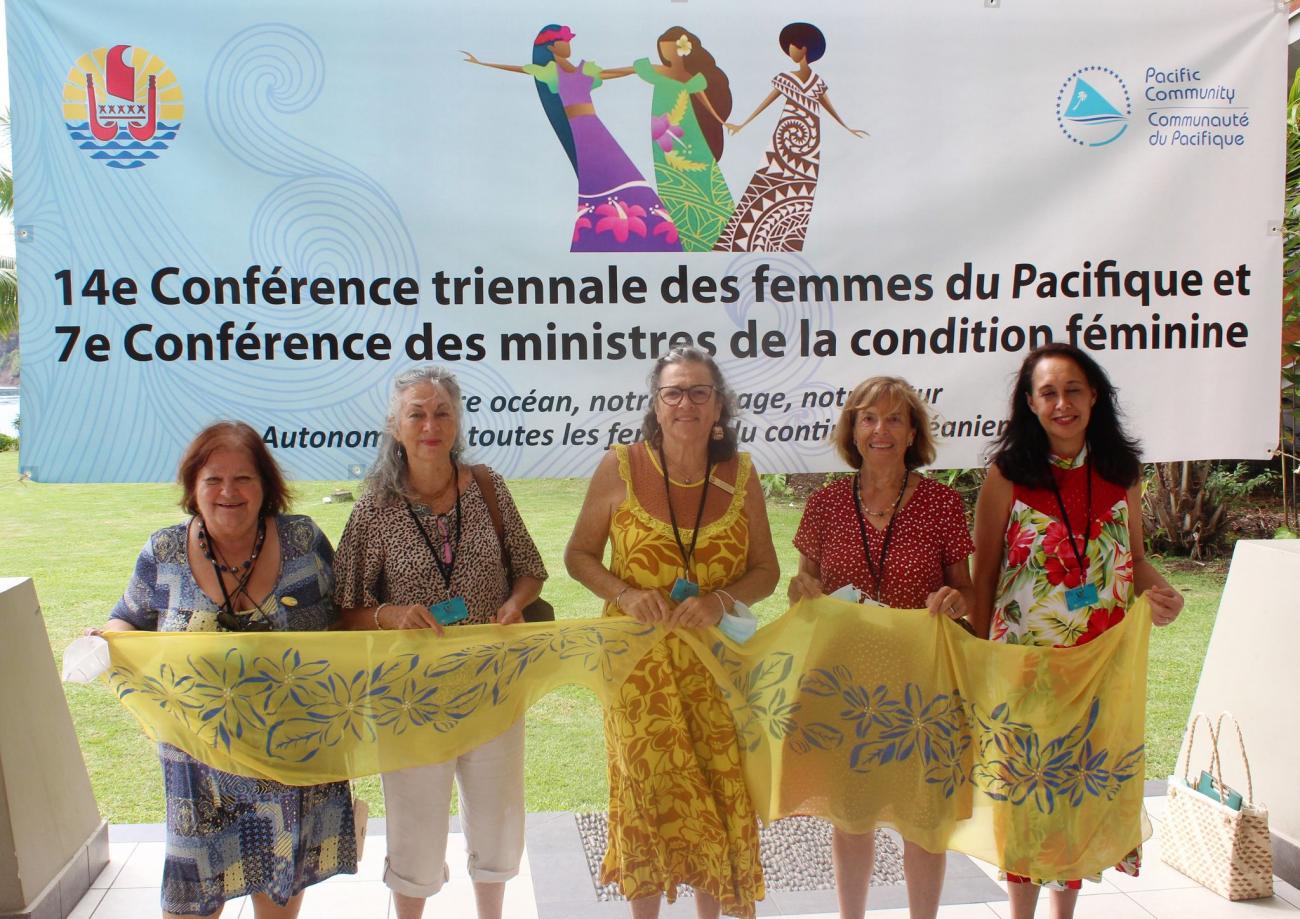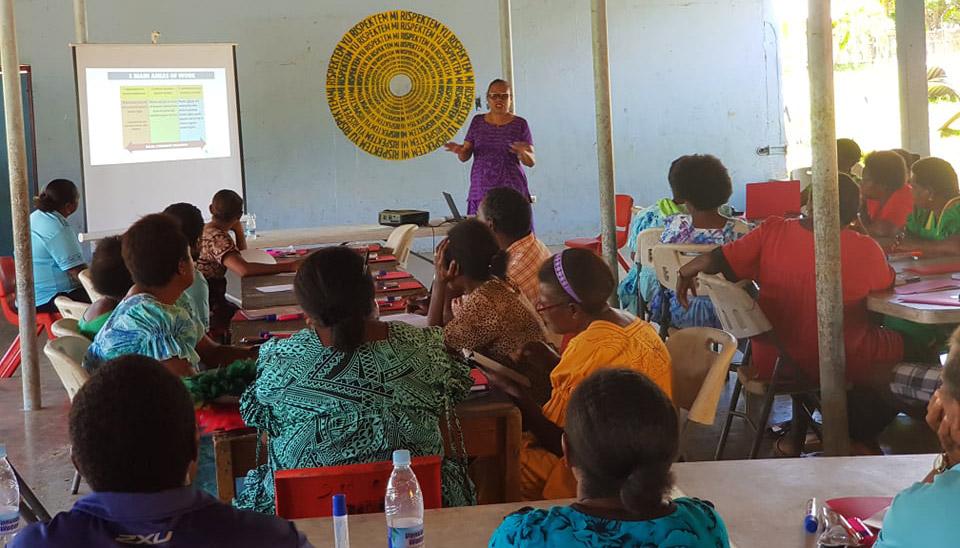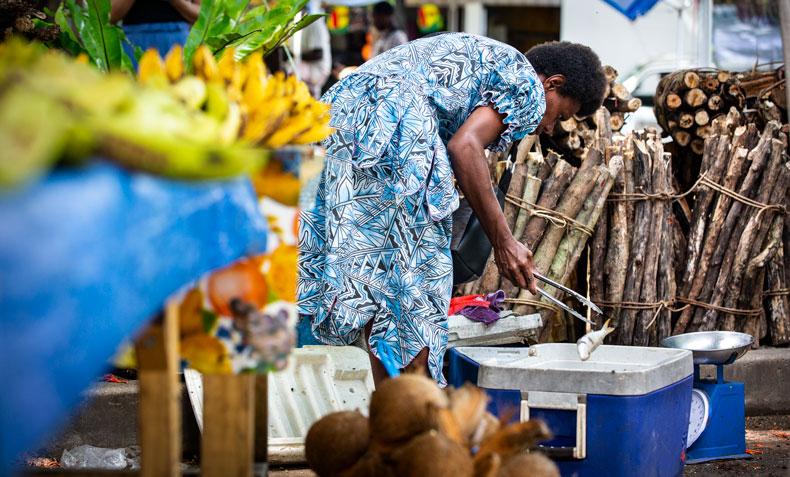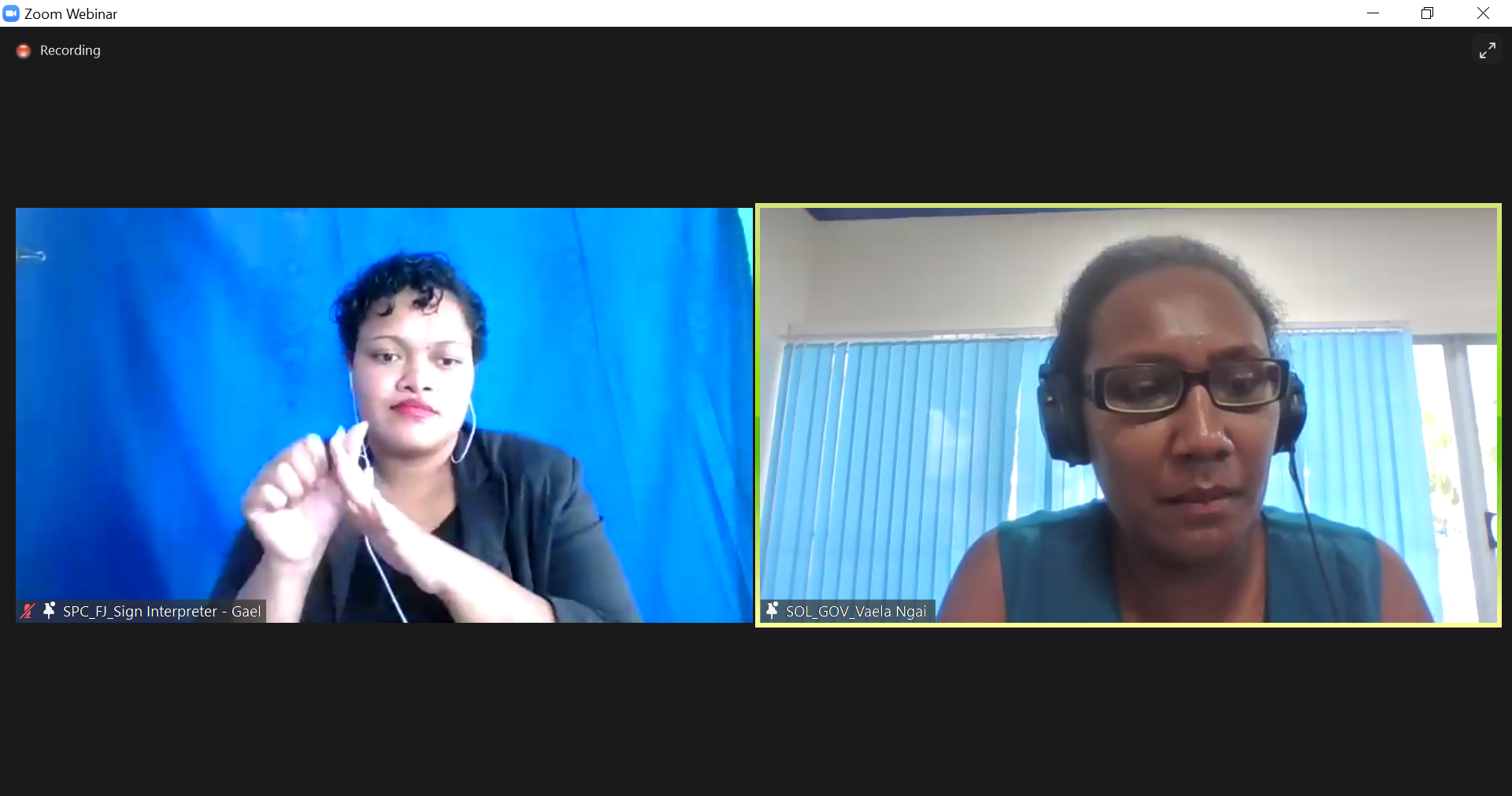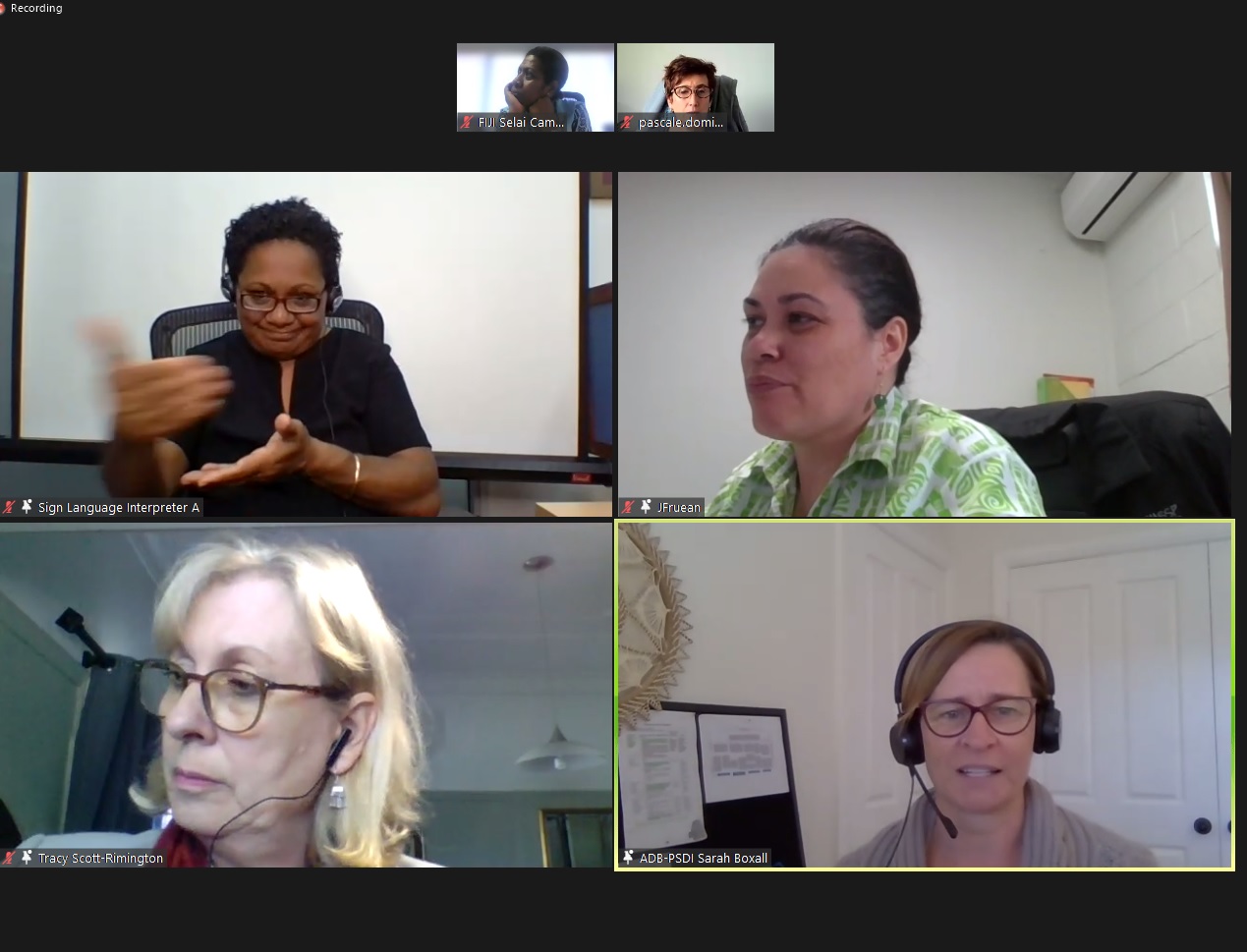Ever wondered how locally produced fruits and vegetables reach our community markets despite the heavy restrictions in place due to the current COVID-19 pandemic?
The COVID environment has created additional challenges for market vendors from across the region, who already faced issues in getting their produce to their stalls. Women in particular, who represent the majority of sellers, face challenges in accessing economic opportunities in the informal sector.
These concerns were voiced at a side event titled: Market Vendor Associations in Solomon Islands, Fiji and Vanuatu: advancing Women’s Economic Empowerment organised by UN Women last week and held in the margins of the 14th Triennial Conference of Pacific Women.
The side event focused on market vendor association’s roles in advancing women’s economic empowerment (WEE) in local markets, highlighting not only challenges but also how women were driving change at local level, specifically in the COVID context.
Members of respective market vendors associations from Fiji, Solomon Islands and Vanuatu spoke in this side event.
Port Vila Market – Vanuatu
When COVID-19 was declared a global pandemic in March 2020, the Vanuatu government declared a state of emergency and implemented strict protocols throughout the country, including the markets. This not only included social distancing protocols but also the reduction of opening hours to 6am to 8pm, a change from the usual 24 hours a day, six days a week.
Jeanette Wallace, Secretary for the Silae Vanua Market Vendors Association for Port Villa explained “The market vendors would sleep at the market with the unsold produce. In the COVID-19 period, the city council required the market to be empty by 8pm, each day. The vendors must take the leftover produce when they leave the market, which means they must pay for transport to take their produce home, and then pay for transport again the next morning to bring the produce back to the market.”
This proved to be very expensive, especially when many people in Port Villa also lost their jobs and the usual number of customers at the market was reduced heavily, affecting the vendors income per day.
The vendors signed petitions and submitted it to Wallace’s team and the Market Vendors Association. These petitions were sent to the Market Manager who then escalated it to the Clerk of the Port Vila City Council for their action.
After a week, the vendors were notified that they can leave the unsold produce at the market with provisions made for a security guard to look after the produce.
Wallace explained that “A few of our vendors are satisfied and are saying that there is an increase of income, because they do not have to spend on transportation of leftover produce at the end of each day, the women vendors are able to go home at the end of the day and there has been decrease in their stress levels as they are sleeping better at home.”
Luganville Municipal Market – Santo, Vanuatu
2020 was filled with challenges for market vendors on Santo as the island not only faced the restrictions imposed by the global pandemic but also massive destruction to their crops and properties as category 5 Tropical Cyclone Harold made landfall on the southwest part of the island in April.
Catherine Leo, Luganville’s Market Manager, elaborated on two major issues faced by the communal market in the aftermath of TC Harold.
Firstly, the market lost a significant part of their income because the number of vendors coming to the market decreased, as many homes and gardens from the south and west coast had been destroyed by the cyclone.
Secondly, while many vendors from the southwest coast of Santo lost their gardens, vendors from the East were more fortunate and were able to transport their produce to the market. However, due to the state of emergency, the Luganville Council imposed restrictions, including reduced opening hours (6am to 6pm) and banning vendors from sleeping at the market to guard their leftover produce.
These restrictions once again caused considerable transportation issues for the eastern vendors.
“Although the transport owners were willing to bring vendors as early as 4am, they must wait until 6am, before they can unload their products. So transport owners are reluctant to come as late as 6am,” Leo explained.
Through collaborative efforts of the Municipal Council, Market Vendors Association and the Mayor’s Office in Luganville, amendments were made to restrictions to support local vendors.
Despite the council losing a big part of their income, market stall fees were excused. In addition, more vendors were allowed in the market on a rotation basis, keeping in line with the COVID-19 restrictions.
Leo was part of the team that collated the concerns of the vendors and voiced it at the Mayor’s office, especially regarding opening hours and transport. In response, the mayor’s office allowed the market to open at 4am, as requested.
“So now the vendors are happy, they can come early to the market, and transport owners are also happy to bring the vendors, because they have no clash with their schedule. And the council is slowly picking up on their income, as more vendors were able to come to the market now,” said Leo.
Similar inspiring stories were shared by vendors from Fiji and Solomon Islands at the side-event.
The Triennial Conference of Pacific Women and the 7th Meeting of the Pacific Ministers for Women, coordinated by SPC takes place from 27 – 29 April and 4 May respectively (Fiji Time). For more news, information and updates from this regional meeting, please visit: https://www.spc.int/pacificwomentriennial
Division
Corporate
Human Rights and Social Development (HRSD) Division
